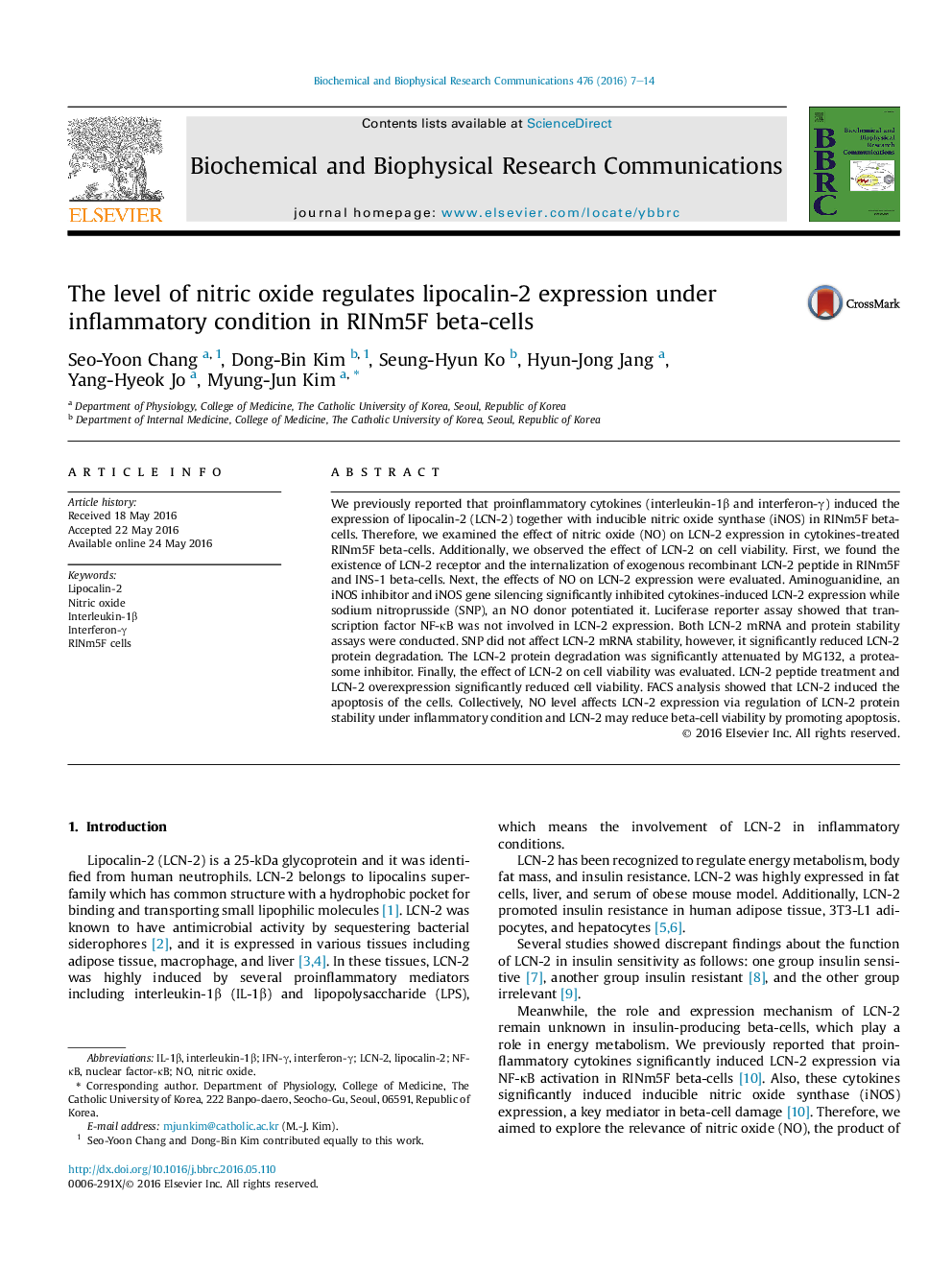| Article ID | Journal | Published Year | Pages | File Type |
|---|---|---|---|---|
| 1927813 | Biochemical and Biophysical Research Communications | 2016 | 8 Pages |
•Little is known about LCN-2 expression under inflammatory condition in islet beta-cells.•We examined the effect of NO on LCN-2 expression mechanism and the effect of LCN-2 on cell viability in RINm5F cells.•The level of NO affects LCN-2 expression via regulation of LCN-2 protein stability under inflammatory condition.•LCN-2 may reduce beta-cell viability by promoting apoptosis.
We previously reported that proinflammatory cytokines (interleukin-1β and interferon-γ) induced the expression of lipocalin-2 (LCN-2) together with inducible nitric oxide synthase (iNOS) in RINm5F beta-cells. Therefore, we examined the effect of nitric oxide (NO) on LCN-2 expression in cytokines-treated RINm5F beta-cells. Additionally, we observed the effect of LCN-2 on cell viability. First, we found the existence of LCN-2 receptor and the internalization of exogenous recombinant LCN-2 peptide in RINm5F and INS-1 beta-cells. Next, the effects of NO on LCN-2 expression were evaluated. Aminoguanidine, an iNOS inhibitor and iNOS gene silencing significantly inhibited cytokines-induced LCN-2 expression while sodium nitroprusside (SNP), an NO donor potentiated it. Luciferase reporter assay showed that transcription factor NF-κB was not involved in LCN-2 expression. Both LCN-2 mRNA and protein stability assays were conducted. SNP did not affect LCN-2 mRNA stability, however, it significantly reduced LCN-2 protein degradation. The LCN-2 protein degradation was significantly attenuated by MG132, a proteasome inhibitor. Finally, the effect of LCN-2 on cell viability was evaluated. LCN-2 peptide treatment and LCN-2 overexpression significantly reduced cell viability. FACS analysis showed that LCN-2 induced the apoptosis of the cells. Collectively, NO level affects LCN-2 expression via regulation of LCN-2 protein stability under inflammatory condition and LCN-2 may reduce beta-cell viability by promoting apoptosis.
